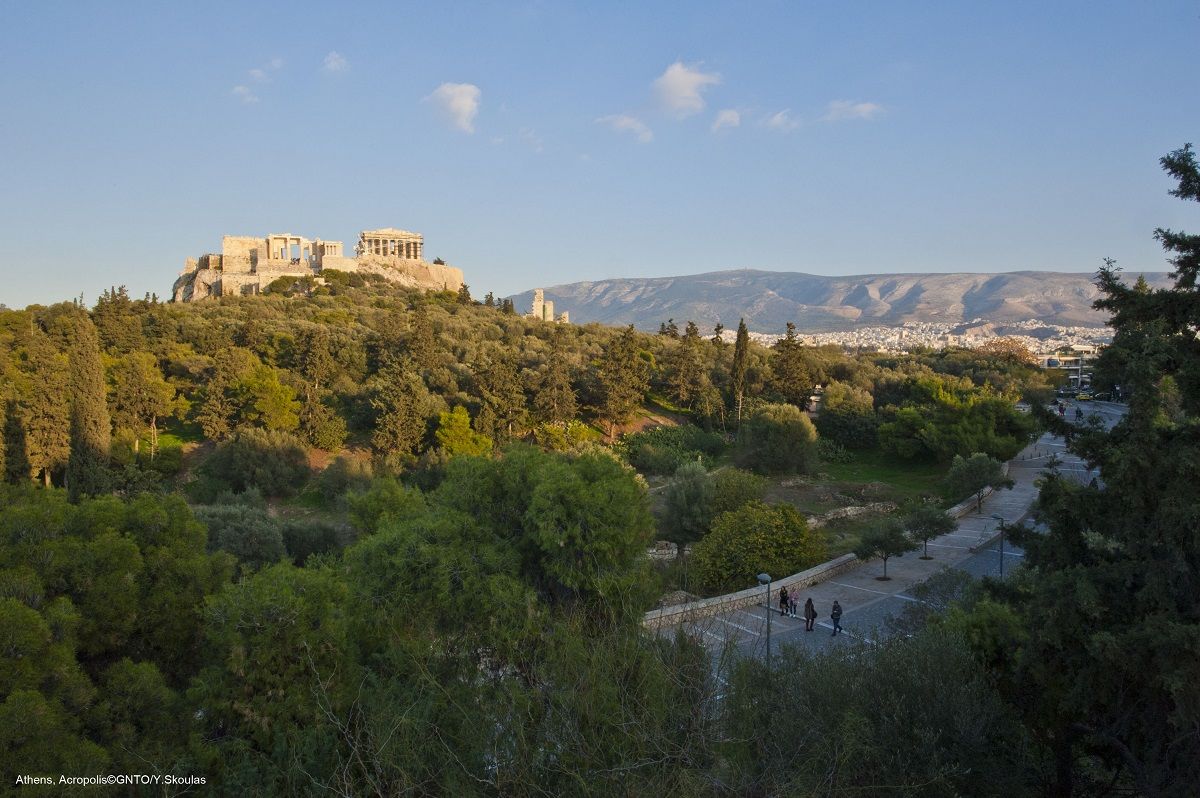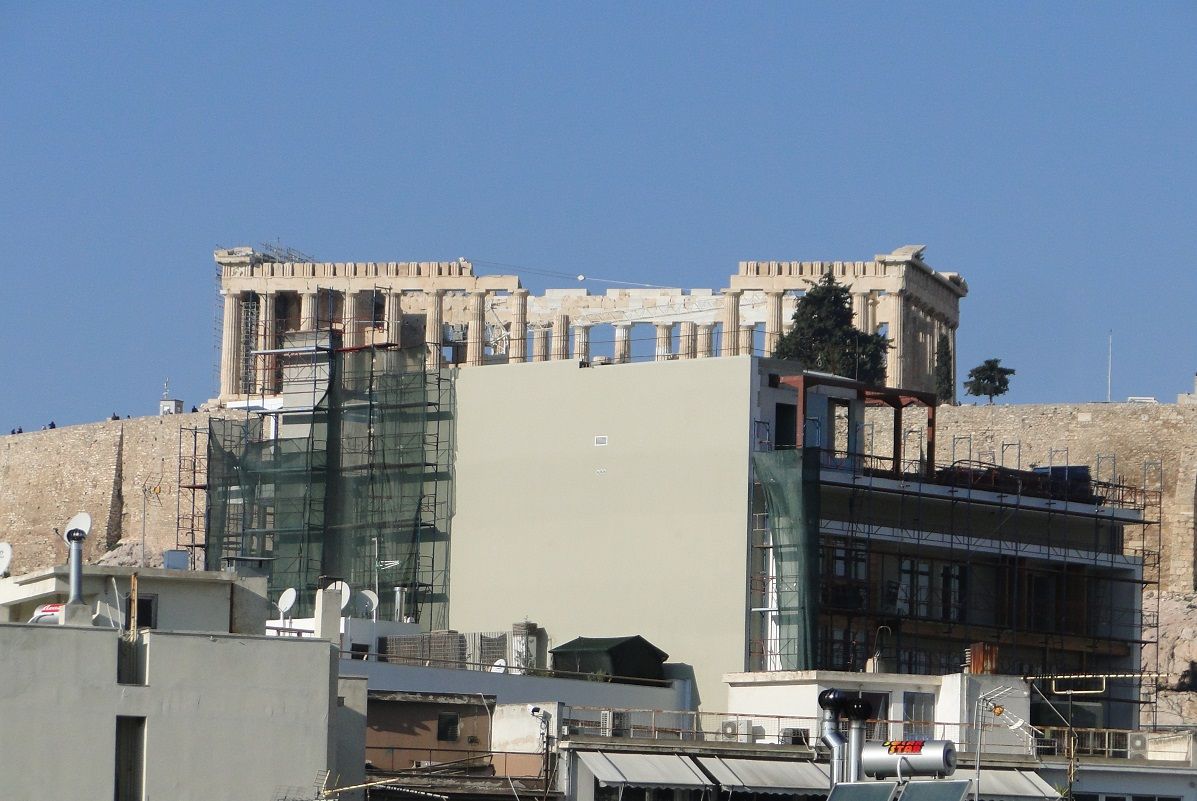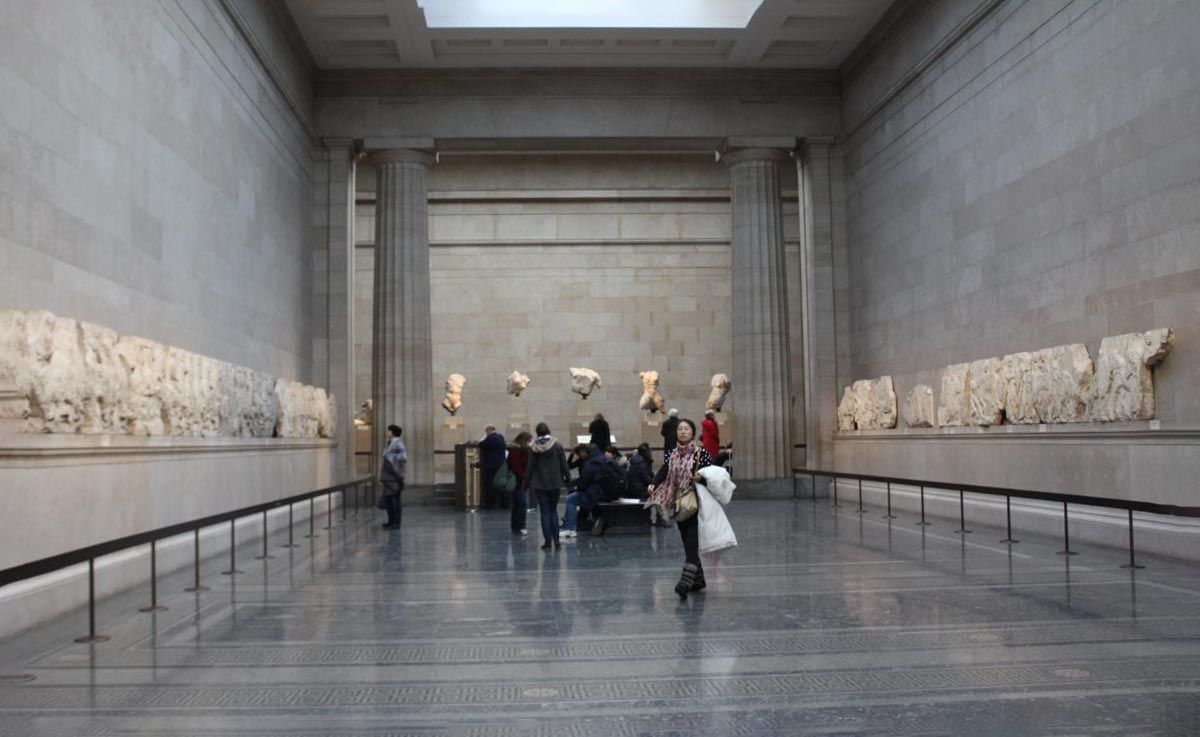Greece’s Higher Court Approves Building Terms for Acropolis Area
In efforts to protect the wider Acropolis area from illegal construction, Greece’s highest court approved this week a set of special terms and building restrictions to apply in and around the Makrygianni and Koukaki neighborhoods, the Environment Ministry announced.
According to the approved draft Presidential Decree, construction in the wider Makrygianni-Koukaki area at the foot of the Acropolis, can be carried out in three zones each defined by special terms and conditions with heights ranging from 17.5 meters (Zone 3) to 24 meters (Zone 2) maximum.
The aim, the ministry said, is to safeguard and showcase the Acropolis through a transparent legal framework.
No More Tall Buildings Around the Acropolis
The decision came after the Council of State ruled in 2019 to revoke a permit allowing the erection of a 10-story hotel in the Koukaki neighborhood, which had spurred the angry reaction of locals in February 2019. Europe’s federation for the protection of cultural heritage, Europa Nostra had also supported the public outcry in Athens, over the construction of the two buildings in front of the Acropolis.
The building, they said, was located within the archaeological area of the Acropolis, and that once completed would block the view to the world famous UNESCO heritage site. The issue prompted the environment and culture ministries to investigate possible gaps in current zoning laws that would allow such interventions.
In 2020, Greece’s Central Archaeological Council (KAS), responsible for the protection of the country’s cultural heritage, said the owner of the hotel operating in the historic center of Athens, was blocking the view to the Acropolis would be required to demolish its two top floors.
Commenting on this week’s decision, Deputy Environment Minister Nikos Tagaras told the Athens News Agency, that the draft order also clears up the development potential of the area around the Acropolis opening the way for much-needed investments, adding that the UNESCO world heritage site was now protected.
“It was our responsibility to protect the Acropolis and at the same time to highlight and preserve the special urban, aesthetic, historical and architectural character of the area by clearly defining the building terms,” he added.
According to Tagaras, the approved Presidential Decree was drafted in collaboration with Culture Minister Lina Mendoni and foresees the protection of the view to the Acropolis, the natural landscape, and its proximity to zones that are already protected, as well as the protection of a number of surviving buildings and monuments in the area.
Strengthens Greece’s Call for Parthenon Marbles’ Return
Commenting on the announcement, the Greek Society for the Environment and Cultural Heritage (ELLET), which together with the residents of Makrygianni (called Makyrgianni SOS) and the Citizens Network for the Historic Centre of Athens had launched a petition against the construction of the said buildings and raised awareness about the issue, said it was a “victory for civil society for humanity”.
ELLET welcomed the Council of State approval of the presidential order, “which paves the way for the institutional protection of the Acropolis”.
ELLET said it was a “historic day for Athens” and that following delays the construction of tall buildings around the Acropolis “comes to an end in a clear and definitive manner, despite the fact that 18 years have passed (2004) after the Makrygianni area around Acropolis was declared an archeological site and 54 years (1968) since the first alarming UNESCO findings”.
It should be noted that a ruling suspending all building permits in the area expired last week. In view of the news and citing the frequent “unconstitutional interpretation of relevant provisions”, ELLET is calling for a complete, clear and definitive building framework covering the area and focusing on three key points: land use, building factors, and coverage, which includes not allowing hotels with more than 100 rooms to operate and maximum heights no more than 21 meters as foreseen by a 1955 order.
“We consider the surrounding area of the Acropolis, an issue of national and even international importance. Its protection must be immediate, substantial and final, thus strengthening our country’s just fight for the return of the Parthenon Marbles,” said ELLET President Lydia Carras.







